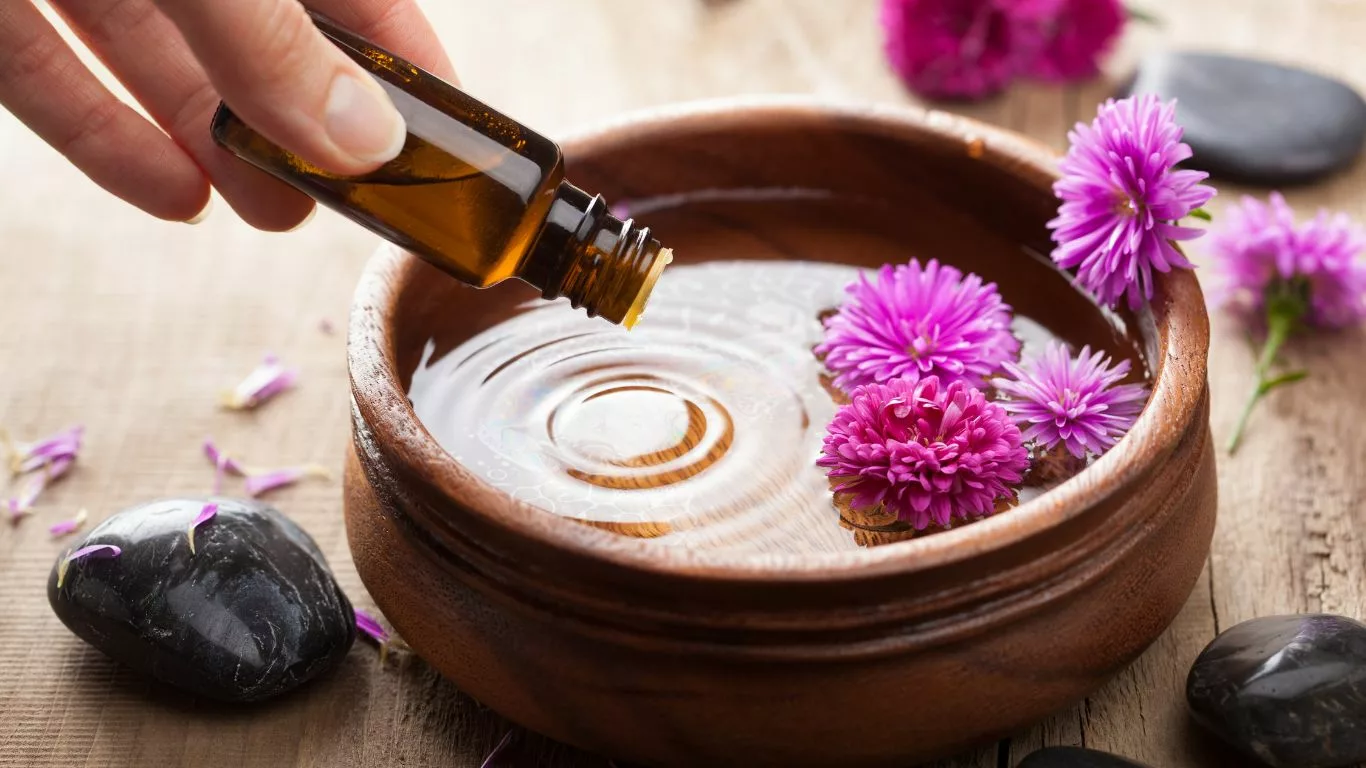Essential Oils for Acid Reflux That Actually Bring Real Relief
When you’re dealing with acid reflux or indigestion, the burning discomfort can take a serious toll on your day. I know this all too well—after years of popping antacids like candy, I finally gave essential oils a chance. To my surprise, they didn’t just help ease the occasional flare-up; they became part of my daily digestive routine. This might sound a little “woo-woo,” but trust me, when you find the right oils and use them correctly, they can work wonders. Let’s explore how certain essential oils can offer real, natural relief from heartburn, GERD, and digestive distress.
How Essential Oils Work for Acid Reflux and Indigestion

Essential oils are concentrated plant extracts that contain potent natural compounds. When used properly—either aromatically or topically—they may help support digestive health by:
- Reducing inflammation in the esophagus and stomach lining
- Stimulating bile flow and enzyme production
- Calming the nervous system, which plays a big role in gut function
- Relaxing abdominal muscles to reduce cramping and bloating
According to Mayo Clinic, GERD and indigestion often stem from lifestyle triggers and muscle dysfunction in the lower esophageal sphincter. Some essential oils, such as peppermint and ginger, may indirectly support these muscle movements and improve digestive comfort.
Top Essential Oils That Help with Heartburn and Reflux

Peppermint Oil – Cooling Relief for the Stomach
I’ve personally relied on peppermint essential oil during those bloated, gassy nights when acid creeps up unexpectedly. The menthol helps relax the digestive tract and relieve pressure. However, use it wisely—it can relax the lower esophageal sphincter too much in some people. For me, diffusing a few drops or using a diluted blend on my abdomen works better than internal use.
Clinical trials have shown peppermint oil may be useful for IBS-related symptoms like cramping, which often overlap with GERD. But if you’re sensitive, always test cautiously.
Ginger Oil – The Classic Digestive Tonic
Ginger has long been used to ease nausea and indigestion, and the essential oil is no different. It stimulates gastric emptying and soothes inflammation. I like to add a few drops to a carrier oil and gently massage it on my stomach after a heavy meal.
Pairing ginger oil with ginger tea can amplify the calming effects on your gut. It’s especially helpful after eating trigger foods or when silent reflux starts stirring.
Want more natural approaches? This guide on soothing reflux throat burn has some great lifestyle tips that pair well with essential oils.
Chamomile Oil – Relaxation in a Bottle
If stress is behind your reflux symptoms (and let’s be honest, for most of us it is), chamomile oil can be a game-changer. Not only does it promote calm, but it also eases digestive spasms and supports better sleep—two essential pieces for anyone with nighttime GERD.
I like to diffuse chamomile with a few drops of lavender about 30 minutes before bed. It’s helped me reduce the frequency of nighttime heartburn, and I’ve recommended it to friends who struggle with sleep-related reflux.
Silent Reflux and Essential Oils

Silent reflux (also known as LPR) is tricky. It doesn’t always cause that classic heartburn but leads to hoarseness, throat clearing, and even postnasal drip. I had it for months before realizing it wasn’t allergies—it was acid creeping up silently.
For this, I found a combination of lavender, eucalyptus, and frankincense in a diffuser helped ease inflammation and keep my airways clearer. You’ll want to avoid ingesting oils with silent reflux—topical or aromatic use is best.
Also, support your efforts with this silent reflux treatment guide for practical strategies that work alongside oils.
Safe Application Methods for Digestive Relief

Topical Use
Most essential oils need to be diluted in a carrier oil like coconut or almond oil. Apply 1–2 drops of essential oil per teaspoon of carrier and massage it clockwise around your abdomen or under your ribcage. This method has worked wonders for me when I’m bloated or gassy after dinner.
Aromatic Use
Diffusing oils or inhaling them from your palms is a safe, effective option—especially before bed or after meals. Just make sure your diffuser is in a well-ventilated space and don’t overdo it. You don’t need to fog up the room for results!
Internal Use (With Caution)
This one’s controversial. While some oils like ginger or peppermint are considered safe when diluted in water or in capsules, I only recommend this under guidance from a healthcare professional or aromatherapist. Too much can irritate your gut lining and make reflux worse.
If you want a more comprehensive look into what essential oils and natural tools work best, this natural remedies for GERD article has great expert-backed insights you’ll want to bookmark.
When to Avoid Essential Oils

There’s no one-size-fits-all. Some essential oils may worsen symptoms depending on your sensitivity or the type of reflux you have. In general, avoid these scenarios:
- Applying oils directly without dilution (especially mint or citrus oils)
- Using oils internally without guidance
- Inhaling oils for prolonged periods without breaks
As always, if you’re dealing with chronic reflux or if symptoms worsen, consult a medical professional. Don’t just mask the symptoms—treat the root cause.
Want to understand the full picture? Check out this pillar guide on GERD symptoms you shouldn’t ignore.
Best Essential Oil Blends for GERD and Digestive Discomfort

After months of experimenting, I found that using single oils is helpful—but blends? That’s where the magic really happens. Here are some combinations that have worked wonders for me and others dealing with GERD or indigestion.
1. Cooling Calm Blend – Peppermint + Lavender
This duo helps me manage reflux that strikes when I’m stressed out. I usually diffuse 3 drops of lavender with 2 drops of peppermint after dinner. It gives a calm, cooling sensation and seems to settle my digestion while helping me unwind.
2. Stomach Soother Blend – Ginger + Fennel + Sweet Orange
I call this my “food hangover” blend. After big, rich meals, this trio helps ease bloating, pressure, and that tight chest feeling. Apply diluted on your upper abdomen or use in a roller bottle before meals that might be risky. It’s one of the best ways to support digestion naturally without relying on meds.
3. Silent Support Blend – Roman Chamomile + Frankincense
When my LPR symptoms flare—like that annoying lump-in-throat feeling or nighttime throat clearing—I diffuse this combo by the bed. It helps reduce inflammation and tightness, especially when paired with elevated sleep positions.
Tips to Maximize the Benefits of Essential Oils for Reflux

- Consistency beats intensity – Use oils daily in small doses rather than waiting for symptoms to peak.
- Track your triggers – Keep a journal of what you eat, when you use oils, and how you feel afterward. You’d be surprised how patterns emerge.
- Use post-meal rituals – Diffusing ginger and chamomile after dinner has become my non-negotiable. It’s helped reduce flare-ups significantly.
- Pair with lifestyle changes – Oils alone won’t fix poor diet or eating late at night. Combine them with GERD-friendly habits for the best results.
There’s a great read on lifestyle changes that actually work if you want to dig deeper into holistic strategies.
What to Look for When Buying Essential Oils

This one matters more than you’d think. Not all essential oils are created equal. Poor-quality or synthetic oils can do more harm than good—especially if you’re applying them topically or inhaling them.
Here’s my quick checklist for choosing safe, effective oils:
- Look for 100% pure therapeutic grade – No fillers, no fragrance oils.
- Check for GC/MS testing – Reputable companies will publish purity test results.
- Know the Latin name – For example, Mentha piperita for peppermint ensures you’re getting the right species.
- Buy from trusted brands – I personally stick to Plant Therapy and Rocky Mountain Oils, but there are others out there doing great work too.
If you’re serious about natural digestive support, the quality of your oils makes all the difference. You want results, not irritation.
Combining Essential Oils with Other Natural Remedies

In my personal journey with acid reflux, what really made a difference was combining remedies—not just relying on one thing. Essential oils play a supportive role, but pairing them with other gentle, effective methods creates long-term relief. Here’s what’s worked for me:
- Drinking ginger or chamomile tea with oil diffusing
- Using fennel seeds after meals while applying an oil blend
- Practicing diaphragmatic breathing to calm the gut-brain axis
- Following an alkaline diet and tracking food sensitivities
Combining internal and external strategies allows the body to reset—slowly but sustainably.
When Essential Oils Aren’t Enough

Let’s be real—there are times when essential oils just don’t cut it, especially for chronic, severe GERD. If you’re experiencing symptoms like persistent chest pain, difficulty swallowing, or unexplained weight loss, it’s time to consult a doctor. These could signal complications like esophagitis or even Barrett’s esophagus.
For others, medications like H2 blockers or proton pump inhibitors may still be necessary, at least in the short term. And that’s okay. The goal is healing—whatever that path looks like for you. But don’t ignore early warning signs. This GERD symptom guide is a must-read for identifying red flags.
Remember: essential oils are a complementary therapy, not a cure. Used wisely and consistently, they can support better digestion, reduce flare-ups, and bring calm to your daily routine. For many of us living with reflux, that makes a world of difference.

Camellia Wulansari is a dedicated Medical Assistant at a local clinic and a passionate health writer at Healthusias.com. With years of hands-on experience in patient care and a deep interest in preventive medicine, she bridges the gap between clinical knowledge and accessible health information. Camellia specializes in writing about digestive health, chronic conditions like GERD and hypertension, respiratory issues, and autoimmune diseases, aiming to empower readers with practical, easy-to-understand insights. When she’s not assisting patients or writing, you’ll find her enjoying quiet mornings with coffee and a medical journal in hand—or jamming to her favorite metal band, Lamb of God.







